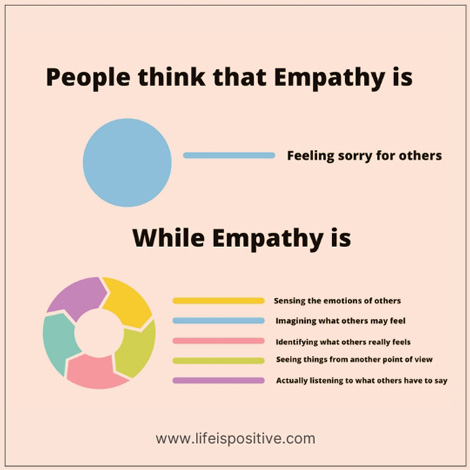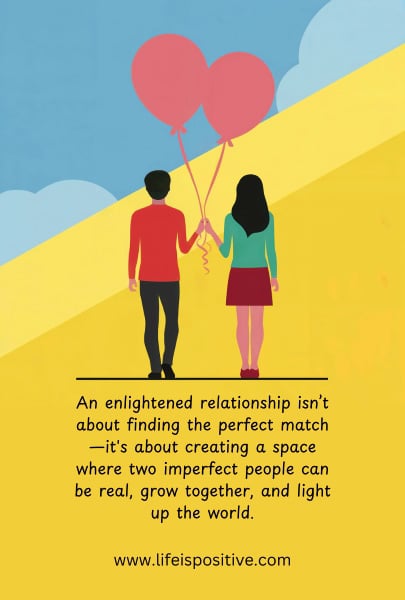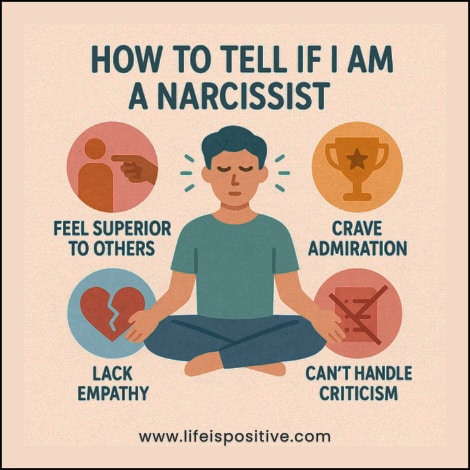|
Getting your Trinity Audio player ready...
|
Let’s be real—no one wants to think of themselves as a narcissist. It’s one of those labels that stings, even just to wonder about. But if you’ve ever caught yourself thinking, “How to tell if I am a narcissist?”—first of all, give yourself some credit. The fact that you’re even asking shows self-awareness, and that’s a big deal.
Narcissism gets thrown around a lot—sometimes as an insult, other times as a clinical diagnosis. But in everyday life, narcissistic traits can show up in subtle ways. It’s not always about selfies or being loud in a room. Sometimes, it’s about patterns of thought, behavior, and emotional habits that are hard to notice… until you slow down and take a deeper look.
This post isn’t here to shame or label—it’s here to help you explore, reflect, and grow. So, if you’re wondering how to tell if I am a narcissist, here are 10 honest red flags you really shouldn’t ignore.
1. You Struggle With Empathy
One of the clearest signs of narcissistic tendencies is a consistent struggle with empathy. Now, that doesn’t mean you’re heartless or incapable of caring—but if you often find it hard to really connect with or understand someone else’s emotions, it’s something to take a closer look at.
Ask yourself: Do you tend to brush off other people’s feelings? Do you get uncomfortable when someone opens up or shows vulnerability? If your first reaction is to think they’re overreacting or that wouldn’t bother me, that might be a gentle nudge from your inner self to pause and reflect.
When it comes to figuring out how to tell if I am a narcissist, this is a big one. A lack of empathy can create emotional distance in relationships and make others feel unseen. If this resonates, don’t panic—just get curious. Noticing the pattern is the first step toward deeper emotional growth and more compassionate connections.
Read: 4 Most Narcissistic Zodiac Signs
2. You Crave Constant Validation
Let’s be real—everyone enjoys a little recognition now and then. Feeling seen and appreciated is part of being human. But if you constantly need praise or approval just to feel okay, it might be time to look a little deeper when your sense of self-worth depends on outside validation, that can be one of the subtle signs pointing toward narcissistic tendencies.
Start here: Do you get anxious or even a little irritated when you’re not the center of attention? Do you catch yourself fishing for compliments or steering conversations back to yourself without even realizing it?
This craving for affirmation isn’t something to judge—it’s something to get curious about. Your spirit may be asking for real, grounded confidence—the kind that comes from within, not applause. Noticing these patterns is a powerful step toward healing, growth, and reconnecting with your authentic self.
3. You Struggle With Criticism—Even Constructive
Let’s talk feedback—it’s not always easy to hear, but it’s one of the most powerful tools for growth. If your default reaction to constructive criticism is to get defensive, shut down, or shift the blame onto someone else, that might be a red flag. One of the more subtle signs of narcissistic tendencies is a fragile sense of self that can’t handle being wrong or imperfect.
Pay close attention to how you respond when someone calls you out or kindly offers a suggestion. Do you feel a knee-jerk need to defend yourself? Does your ego jump in to protect your pride?
This isn’t about judging yourself—it’s about noticing. Real growth happens when we can sit with the discomfort, breathe through it, and ask, What is this teaching me? When you trade ego for awareness, you step into a more grounded, spiritually aligned version of yourself.
Read: You Are in Love With a Narcissist
4. You Often Feel Superior to Others
Here’s something worth sitting with: narcissists often carry an unspoken belief that they’re a little smarter, more talented, or more deserving than the people around them. It’s not always loud or obvious, but it shows up in subtle ways. Maybe it’s that quiet thought that others just don’t get it, or the feeling that you’re operating on a different level entirely.
If you’re wondering how to tell if I am a narcissist, this sense of superiority is an important clue to reflect on. There’s absolutely nothing wrong with being confident or owning your gifts—that’s a beautiful thing. But true, grounded confidence uplifts others, too. It doesn’t come from comparison or needing to feel “above” anyone else.
Spiritual growth is about connection, not hierarchy. So if that inner voice ever whispers that you’re somehow better than the rest, gently check in with it. The real you—the soul-centered, wise you—knows we rise higher when we rise together.
5. Relationships Feel One-Sided
One of the clearest clues when asking yourself if I am a narcissist is to take an honest look at your relationships. Are they balanced? Or do they feel a little one-sided? If you find yourself expecting loyalty, attention, or emotional support—but not offering the same in return—it’s a gentle nudge to pause and reflect.
Healthy relationships thrive on mutual care. They’re a two-way street, built on respect, presence, and give-and-take energy. If people around you seem drained, distant, or like they’re walking on eggshells, it could be a sign that something’s out of alignment.
This isn’t about blame—it’s about awareness. Being spiritually aligned means showing up with heart, not just receiving love but giving it freely too. When you start checking in with how you contribute to your relationships, you open the door to deeper, more soulful connections—and that’s where true healing begins.
Read: 12 Signs of a Female Narcissist
6. You Manipulate Without Realizing It
Let’s talk about one of the sneakier sides of narcissism: subtle manipulation. Yes, we’re talking guilt-tripping, gaslighting, twisting the story just enough to keep control of the narrative. Sound intense? Sure—but here’s the twist: it’s not always some grand evil mastermind move. More often than not, this kind of behavior comes from fear, insecurity, or the need to protect a fragile ego.
Now, if you catch yourself constantly managing how others see you, or maybe bending the truth just a bit to get your way, don’t panic. But definitely pay attention.
These patterns may feel small or even “justified,” but they matter. They chip away at trust and block real connection. The good news? Noticing it means you’re already on the path to change. Self-awareness isn’t always comfortable, but it’s pure gold. Growth starts with honesty. And honesty starts right here.
7. You Rarely Admit When You’re Wrong
Let’s get real for a second—when was the last time you said “I’m sorry” and genuinely meant it? No defensiveness, no blaming someone else first, just an honest moment of owning your stuff. If that feels tough or super rare, it might be a sign to pause and reflect.
This is a big one to look at. Can you take responsibility for your actions without feeling like it’s a personal attack? Or does every bit of feedback feel like a threat to your ego?
Here’s the truth: growth requires humility. And humility doesn’t mean shrinking yourself—it means understanding that messing up is part of being human. We all do it. The difference is whether we choose to learn from it or keep dodging the mirror.
Owning your mistakes is powerful. It’s not weakness—it’s wisdom.
8. You Prioritize Image Over Authenticity
Let’s talk image vs. authenticity—because if you’ve ever caught yourself wondering how to tell if I am a narcissist, this one hits close to home.
Narcissists tend to care a lot about how they’re perceived. It’s not just wanting to look good—it’s needing to control the narrative. If you find yourself spending more time curating how others see you than actually connecting from a real, grounded place, it’s definitely something to pause and sit with.
Do you steer clear of vulnerability? Only share the polished, “highlight reel” version of your life? It’s tempting, especially in today’s world, but those narcissistic traits can quietly build a wall between who you really are and the image you’re performing.
And here’s the truth: that kind of performance gets exhausting—not just for you, but for everyone around you. Authenticity is where healing, connection, and real self-worth begin. You don’t have to be perfect—you just have to be real.
9. You Feel Entitled to Special Treatment
Let’s talk about something that can be easy to miss but super important—entitlement. It’s one of those classic signs that often fly under the radar. If you find yourself thinking the rules don’t quite apply to you, or you get annoyed when others don’t meet your unspoken expectations, it might be time for a little soul check-in.
When asking Am I a narcissist, looking at your sense of entitlement is a big part of the puzzle. Do you feel like the world owes you something just because… well, because you’re you? Do you get frustrated when things don’t go your way, even if it’s no one’s fault?
Entitlement can sneak in quietly and show up as impatience, irritation, or a constant feeling of being let down. Real peace comes from releasing control and embracing gratitude. Life flows better when we meet it with humility, not demands.
10. You Struggle With Genuine Intimacy
Here’s the thing about narcissism—it loves to keep people at arm’s length. Why? Because real intimacy (you know, the deep, soul-level stuff like vulnerability and emotional closeness) can feel way too risky if you’re stuck in narcissistic habits. Letting someone truly see you? That’s spiritual skydiving for a narcissistic mindset.
So, if your relationships tend to stay surface-level, or if the thought of someone really knowing you makes you want to run for cover, it might be time to gently ask yourself: Am I a narcissist—or at least carrying some of those traits?
At its core, narcissism is a defense mechanism—a way to protect a fragile inner world. But here’s the truth: healing doesn’t come from hiding. It comes from getting curious, dropping the mask, and facing what’s underneath with grace.
True connection starts when you stop performing and start showing up as your real, imperfect, glorious self.
Read: Why Do Empaths Attract Narcissists
Final Thoughts: Am I a Narcissist
So, if you’re still sitting with that question—how to tell if I am a narcissist—know this: self-inquiry is a sign of strength, not weakness. Recognizing patterns is the first and most powerful step toward change.
We all carry traits and habits we’re not proud of. But narcissism isn’t a life sentence. With self-awareness, spiritual reflection, therapy, and a willingness to grow, you can shift into a more connected, compassionate, and grounded version of yourself.
If some of these red flags resonated with you, don’t panic. Instead, get curious. Lean in. Ask yourself: Where is this coming from? What is it protecting me from? What do I need to heal?
Because the truth is, your spirit is wired for connection, not control. For love, not ego. And the fact that you’re even reading this shows your soul is ready for something deeper.
For more empowering content, connect with our vibrant community here ➡️ Social Media.



